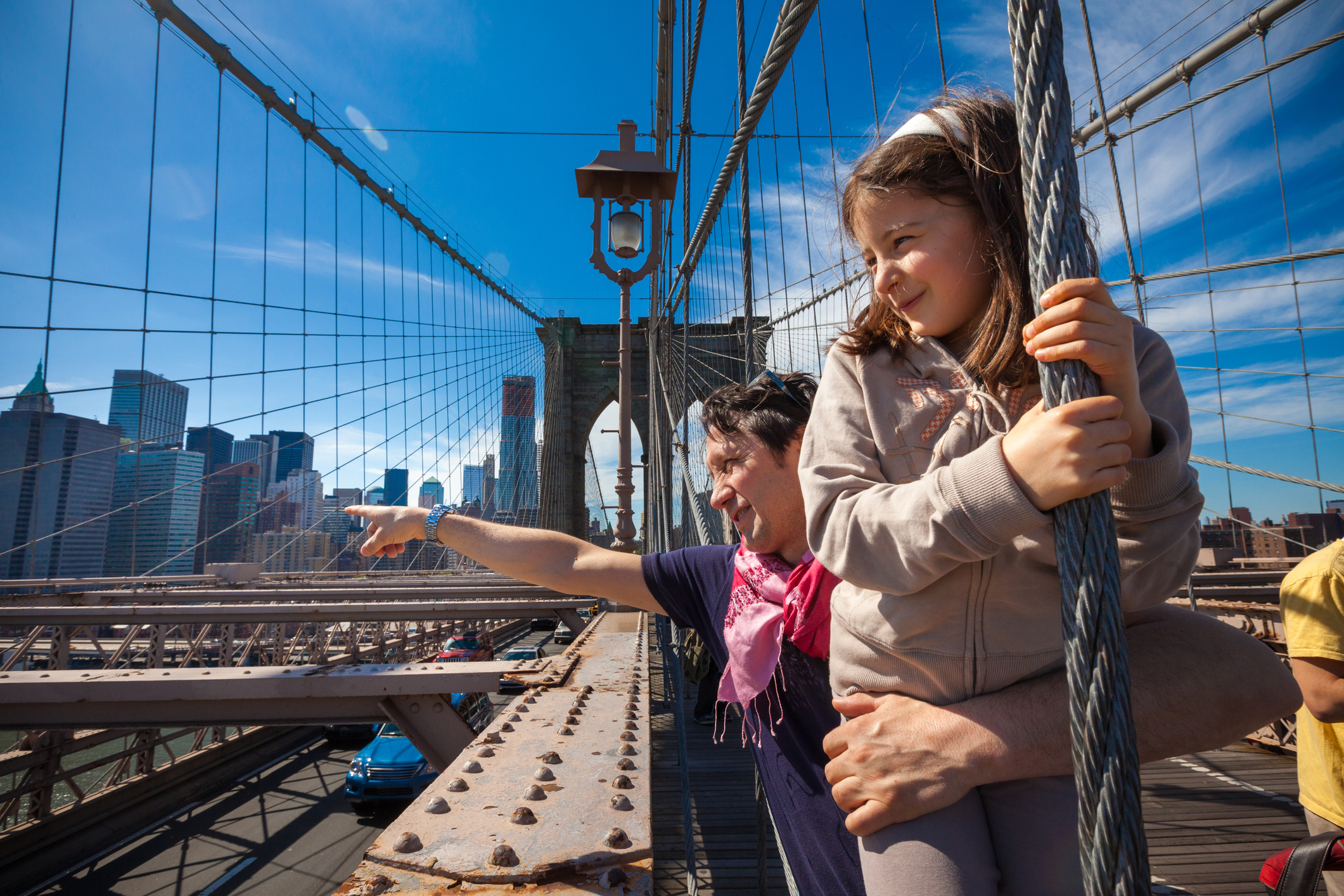
When visiting the most expensive city in America, finding some free and fun things to do on a vacation or staycation can help you stretch your budget and feel like a local. You'll save on transportation expenses, as many of my recommendations are within walking distance of each other. All are also easily reachable by public transportation, which is often the fastest and most budget-conscious way to travel around Manhattan.
1. Grant's Tomb
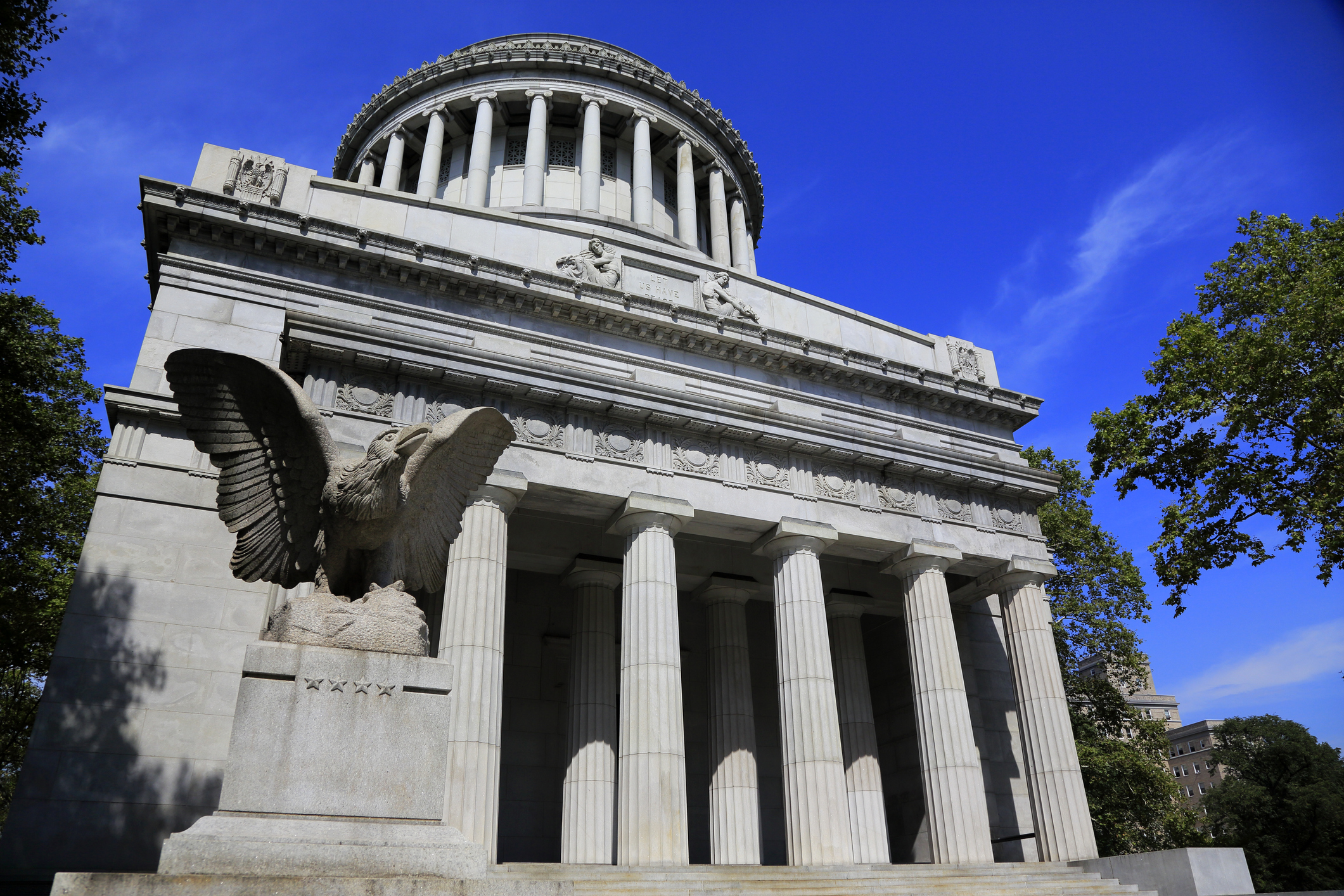
The largest mausoleum in North America is the final resting place of President Ulysses S. Grant and his wife, Julia. It was dedicated in 1897, and was built entirely with $600,000 in donations from the public.
The General Grant National Memorial overlooks the Hudson River in Riverside Park in the Morningside Heights section of Manhattan, near Columbia University. Grant's Tomb (as it is commonly called) is the final resting place of General Ulysses S. Grant and a memorial to his life and accomplishments.
The General Grant National Memorial Main Plaza, General Grant National Memorial Overlook Pavilion, mausoleum and bookstore are open Wednesday-Sunday and federal holidays between 10 am and 4 pm.
Location: Riverside Drive and West 122nd Street. The entrance to the mausoleum is between northbound and southbound Riverside Drive, near the intersection of West 122nd Street. The visitor center is located to the west, across southbound Riverside Drive.
How to get there:
Subway: Take the #1 train to the 116th Street-Columbia University station on Broadway. Walk six blocks North to 122nd Street, and two blocks West to Riverside Drive.
If taking the #2 or #3 express trains, please change at 96th Street for an uptown-bound #1 local train.
Bus: Take the M11 bus to Amsterdam Avenue and West 118th Street.
Take the M104, M4 or M5 bus to 122nd Street and Broadway.
2. Central Park performances
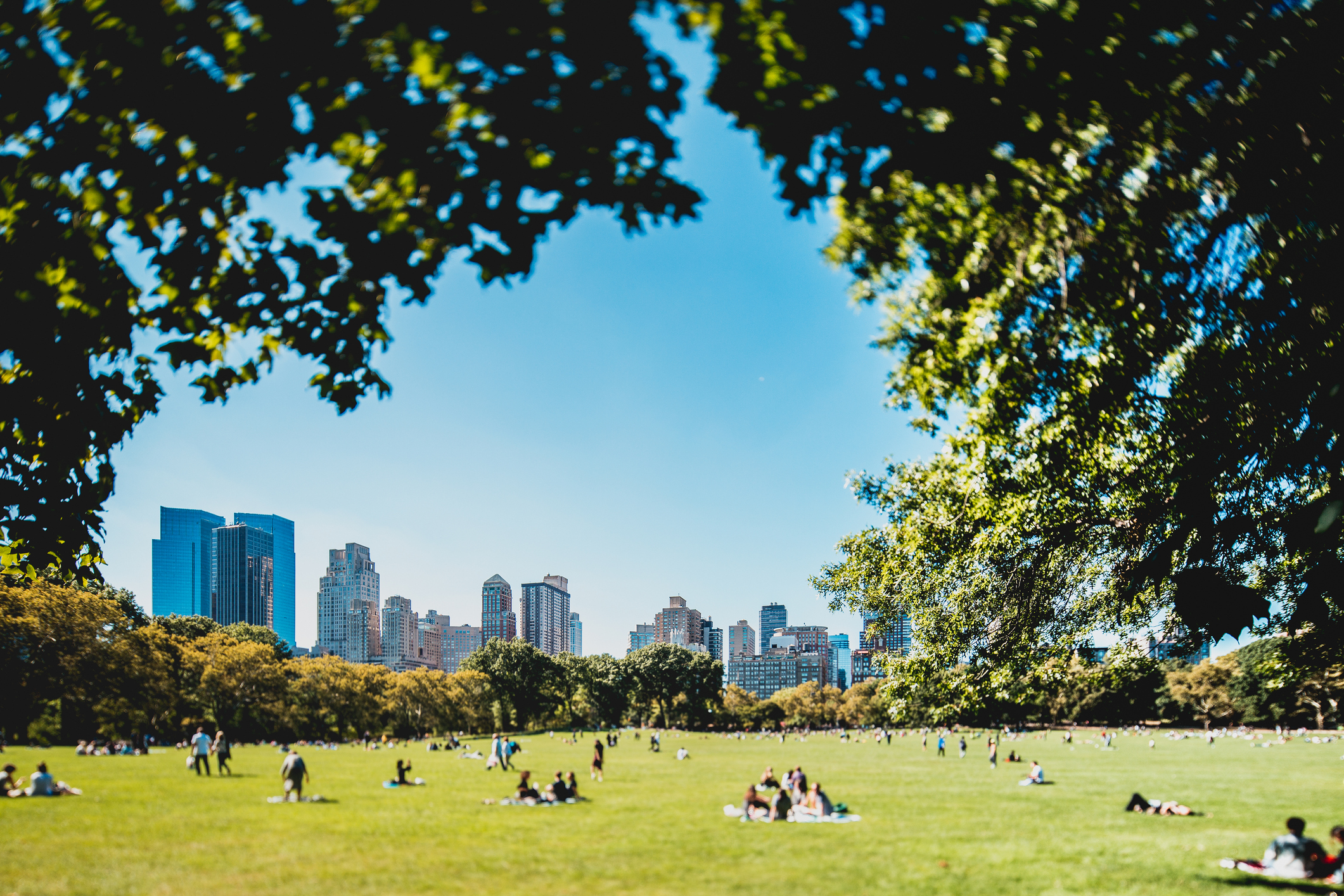
You can do more than stroll and picnic in Central Park. The park plays host to several sought-after performances that you can attend for free and feel like a native taking a break from the heat and getting a dose of nature.
The New York Philharmonic Concerts in the Parks and the Met Opera Summer Recital Series allow you to enjoy some high culture on a blanket under the stars. The New York Philharmonic performances are held on The Great Lawn located mid-park from 79th to 85th Streets. The Metropolitan Opera performs in each borough and when in Central Park performs at Rumsey Playfield.
Shakespeare in the Park is one of my all-time favorite summer activities. The productions are first-rate and draw stars from stage and screen. The Delacorte Theater is an open-air theater that serves as the venue for the free, summertime productions of Shakespeare in the Park. However, it is undergoing renovations and the performances have been moved.
The bilingual Mobile Unit production of The Comedy of Errors is playing across the boroughs, including extended runs at Hudson Yards and in front of The New York Public Library’s Stephen A. Schwarzman Building in collaboration with Bryant Park. The Mobile Unit will also pop up at public plazas and parks across the five boroughs in partnership with NYC Parks as well as other key Public Theater partners. Performances begin Tuesday, May 28 and continue through Sunday, June 30. A list of dates and locations for 2024 can be found at Publictheater.org.
For my fellow Shakespeare fans, The New York Public Library at 42nd Street holds six copies of Shakespeare's First Folio — including one currently on display in the Polonsky Exhibition of The New York Public Library's Treasures. You can drop in before a performance at Bryant Park which is next to the library.
Admission & Seating Policy: Seating is first-come, first-served. There is also space to listen on the grass outside of the venue.
Items Permitted: Food, factory-sealed plastic bottles, strollers, picnic blankets or beach towels, hats, sunglasses, your phone and umbrellas.
Not Permitted: The following cannot be brought into the Central Park venue: backpacks and luggage larger than 16″ x 16″ x 8", glass bottles, cans, coolers, folding chairs, bikes, roller blades, scooters, skateboards, beach umbrellas, balloons, video cameras, laser pointers, drones, selfie sticks, musical instruments, professional camera gear or pets (service animals are allowed).
3. The High Line
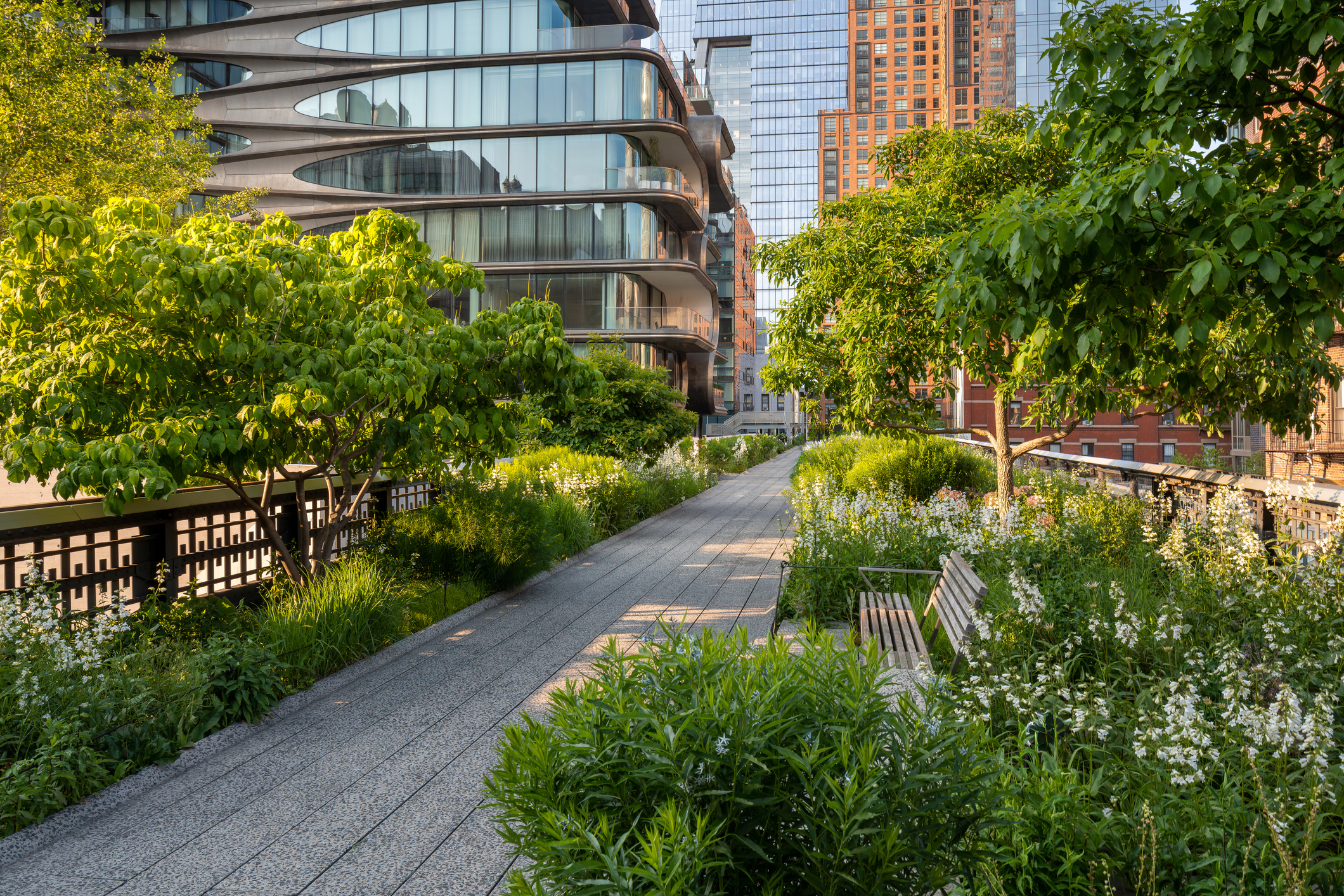
The High Line is one of my favorite places to take a break from the city. This public park was built on a historic freight rail line elevated above the streets on Manhattan’s West Side.
The first High Line I walked was in Paris, La Promenade Plantée, and it was a model for the High Line that so many New Yorkers and tourists enjoy each year.
The High Line is home to over 150,000 plants, trees, and shrubs and the gardens shift and evolve throughout the four seasons. The plantings are inspired by the natural landscape that grew wild before the park was open to the public. You can explore 16 garden zones, each adapted to the specific microclimate of sun, shade, water and wind created by the cityscape around it.
Walking the 1.45-mile (2.4 kilometers) stretch takes about 30 minutes if you don't stop to gaze at outdoor artwork that changes throughout the season. Although the High Line is open during the winter there are no tours, events or information services on the High Line after October.
¡ARRIBA! is my favorite annual event. For one night in July and August, the High Line becomes an open-air dance party where you can enjoy local salsa bands, and a DJ and learn some dance steps. The gorgeous sunset over the Hudson River is an added bonus.
Location: The elevated rail structure runs from Gansevoort St. to 34th St. on Manhattan's West Side.
Elevators and ramp access points are located at:
• Gansevoort Street and Washington Street (Northwest corner) Elevator, ramp and stair access.
• 14th Street and 10th Avenue (Southwest side)
• 23rd Street and 10th Avenue (Southeast side)
• 30th Street and 10th Avenue (Southeast side)
• 31st Street and Dyer Avenue (High Line Moynihan Connector)
Additional stairwell-only access points are located at:
• 16th Street and 10th Avenue
• 17th Street and 10th Avenue
• 20th Street and 10th Avenue
• 28th Street and 10th Avenue
To confirm accessibility, you can check the elevator status before your visit here.
Hours: Hours vary by season. December 1 – March 31: 7 am to 8 pm, April 1 – November 30: 7 am to 10 pm. The Interim Walkway at the Western Rail Yards is open from 7 am until sunset through October 2024.
Tours: Free docent-led public tours are offered on Tuesdays, Wednesdays, Thursdays, and Saturdays from May through August; on Tuesdays, Wednesdays, and Saturdays in September and October; and on Wednesdays and Saturdays from November to April.
Not allowed on the High Line: Dogs, except for service dogs. No skateboards, skates, recreational scooters or bicycles. Walking in planting beds or on exposed rail tracks is prohibited. You can not pick or take cuttings from any flowers or plants.
4. Little Island
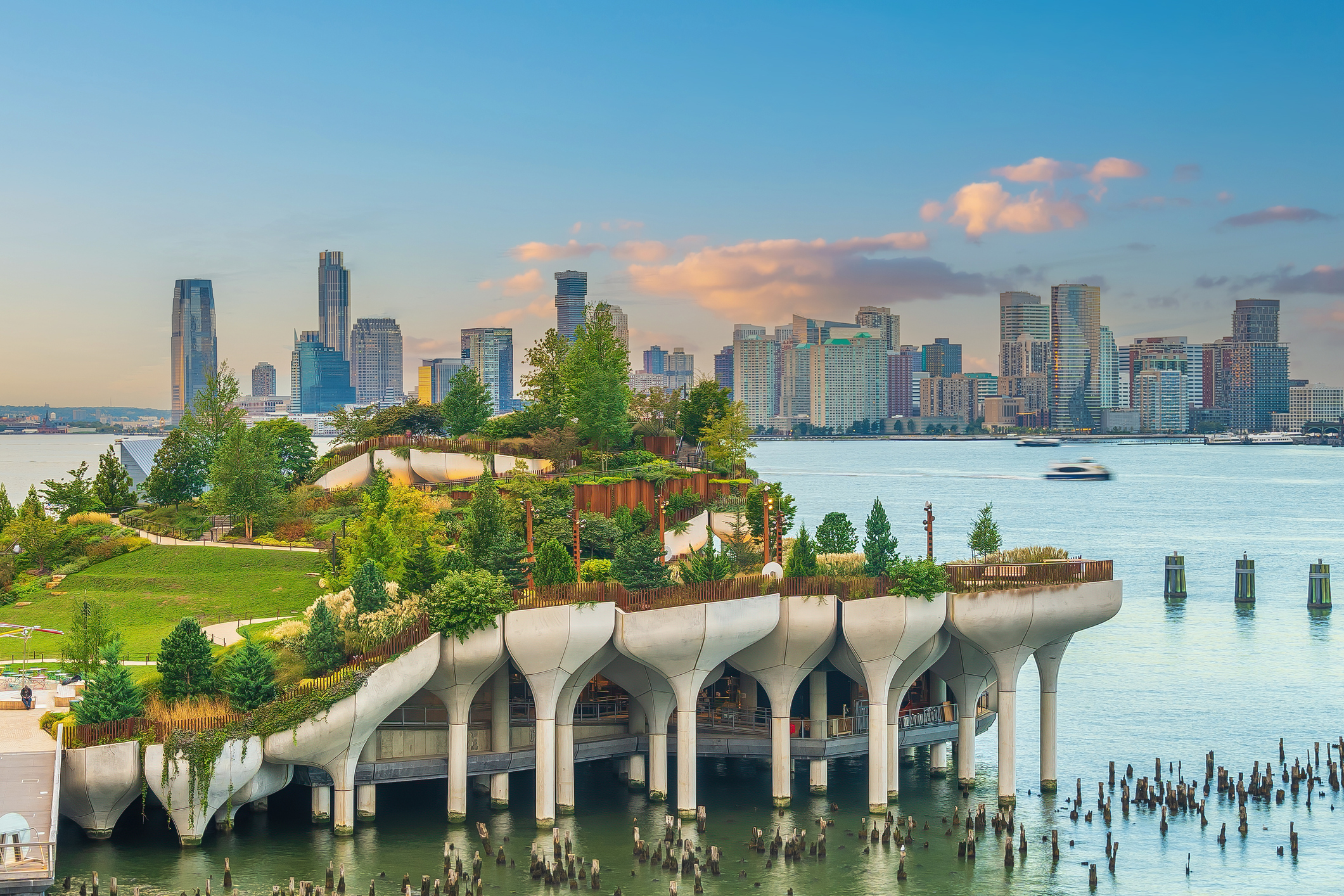
Little Island is a 2.4-acre elevated park that sits above the Hudson River on Manhattan's west side and can be seen from the High Line. The "floating park" opened back in 2021 and is considered to be part of Hudson River Park. The configuration is created by a series of "pods," concrete pilings formed into tulip-shaped supports, set at varying heights. The effect was meant to evoke a "leaf floating on water" according to its designer Thomas Heatherwick.
Little Island features two performance venues where visitors can experience cultural events all summer long. Check out the scheduled performances that will take place at The Amph, the park's 200-seat venue. All tickets run $25, but there will be plenty of smaller performances throughout the season at the Glade that will be free to the public.
Location: Pier55 in Hudson River Park West 13th Street
Hours: Little Island opens at 6:00 am, 365 days a year unless weather conditions dictate otherwise. Closing hours vary by season. Current hours are: March 18, 2024 – May 26, 2024: 6:00 am – 11:00 pm, May 27, 2024 – September 2, 2024: 6:00 am – 12:00 am, September 3, 2024 – November 10, 2024: 6:00 am – 11:00 pm.
Tours: There are no guided tours. You can listen to a Landscape Audio Tour, or a History Audio Tour, as you wander through Little Island.
Accessibility: Little Island is fully accessible to all visitors and is ADA compliant.
Weather: Little Island is open rain or shine. From time to time, the entire park will close if there is lightning within 10 miles, sustained winds over 32 mph or extreme heat.
Not allowed on Little Island: Bikes are not permitted on Little Island. You can park your bike at nearby bike stands located just north and south of Little Island on the Hudson River Park esplanade.
Riding on scooters and skateboards, roller skating/blading, sledding, skiing, or snowshoeing is not allowed in the park. You may carry them in the park.
Only working dogs assisting patrons with disabilities are permitted.
5. The beach at Gansevoort Peninsula
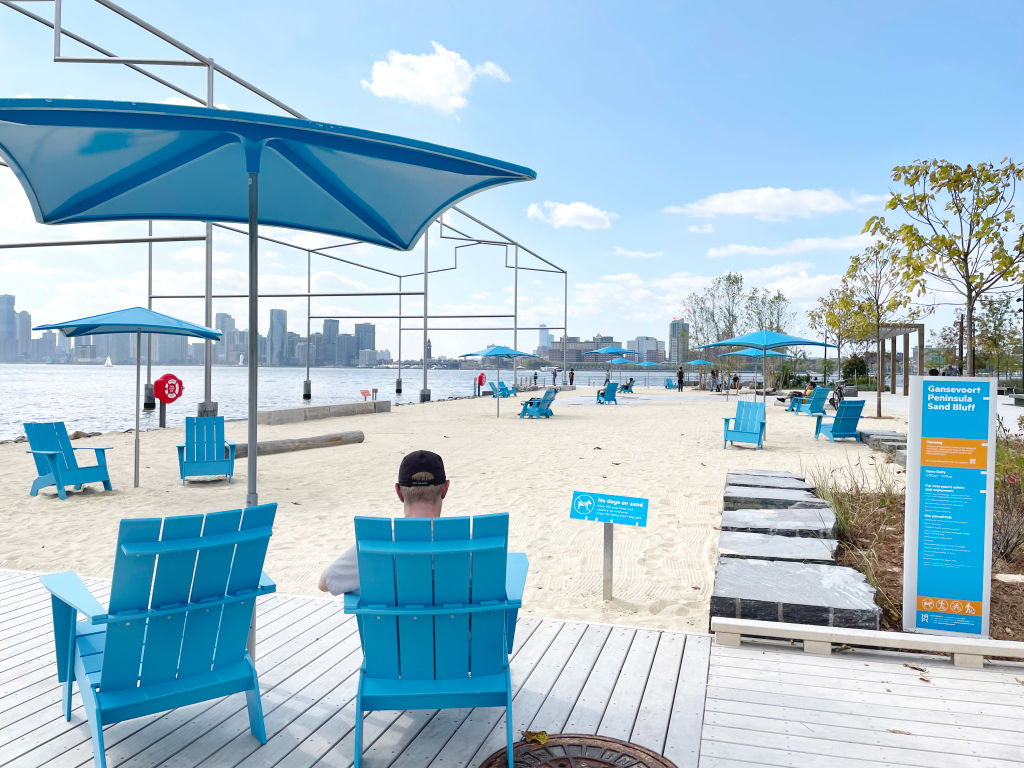
Manhattan's first public beach opened in 2023 and is part of the Gansevoort Peninsula. This novel attraction overlooks the Hudson River and is across from the Whitney Museum. This Peninsula is 5.5 acres and is part of the Hudson River Park Along with the beach you can enjoy boardwalks, pedestrian promenades and a salt marsh on the northern edge.
Gansevoort Peninsula is designed to be strictly a sunbathing beach and swimming is not permitted in the Hudson River. The beach features 1,200 tons of sand, beach umbrellas, Adirondack-style chairs and a super-cool misting area that will help you rinse off sand or just cool off.
There is also a large picnic area with tables and benches overlooking the River, which would be perfect for a break and a bite.
Location: 427-429 Gansevoort Street
Hours: The Gansevoort Peninsula is open from 6:00 am to 1:00 am, 365 days a year unless weather conditions dictate otherwise.
6. The Staten Island ferry
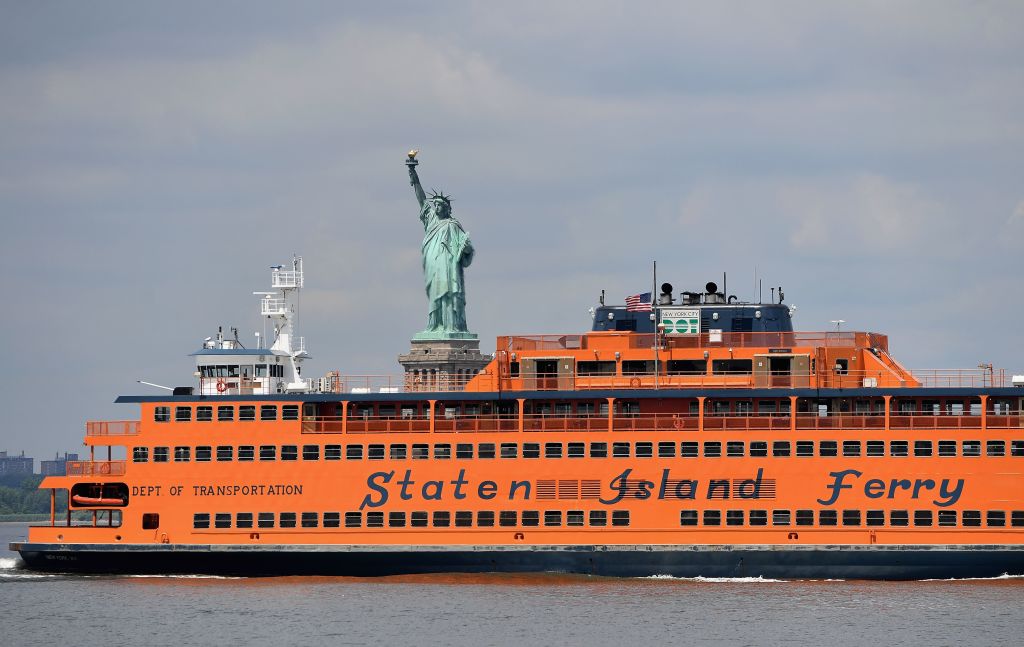
For starters, the Staten Island Ferry is a free service provided by the City of New York — be aware of scammers trying to sell tickets. You do not need a ticket to ride the Staten Island Ferry. It runs 24/7 and operates every 30 minutes during off-peak times.
Whether you want to take a break or eat lunch with a view of the Statute of Liberty, a ride on the ferry will give you 25 minutes (each way) to enjoy the local sights. The Staten Island Ferry offers views of the Statue of Liberty, Lower Manhattan, Brooklyn and the Verrazano-Narrows Bridge. The ferry also passes by Ellis Island and Governor's Island. Sit on the right side on your trip from Manhattan to Staten Island and the reverse on your return trip to get the best views.
I would avoid the ferries during rush hour — they transport almost 70,000 passengers daily between Staten Island and Manhattan. These boats are packed with commuters from 7:00 am to 9:00 am in the morning and from 5:00 pm until 7:00 pm in the evening. There would be stiff competition for seats and the best views. This is easy to do as the schedule highlights the peak ferries in yellow.
Where to get the ferry in Manhattan: 4 Whitehall Street New York, NY. Reachable by many subways and buses.
Hours: Runs 24/7 and never stops running. The ferry operates on a holiday schedule on New Year’s Day, Martin Luther King, Jr. Day, Presidents’ Day, Memorial Day, Juneteenth Day, Independence Day, Labor Day, Thanksgiving Day and Christmas Day.
7. The Brooklyn Bridge
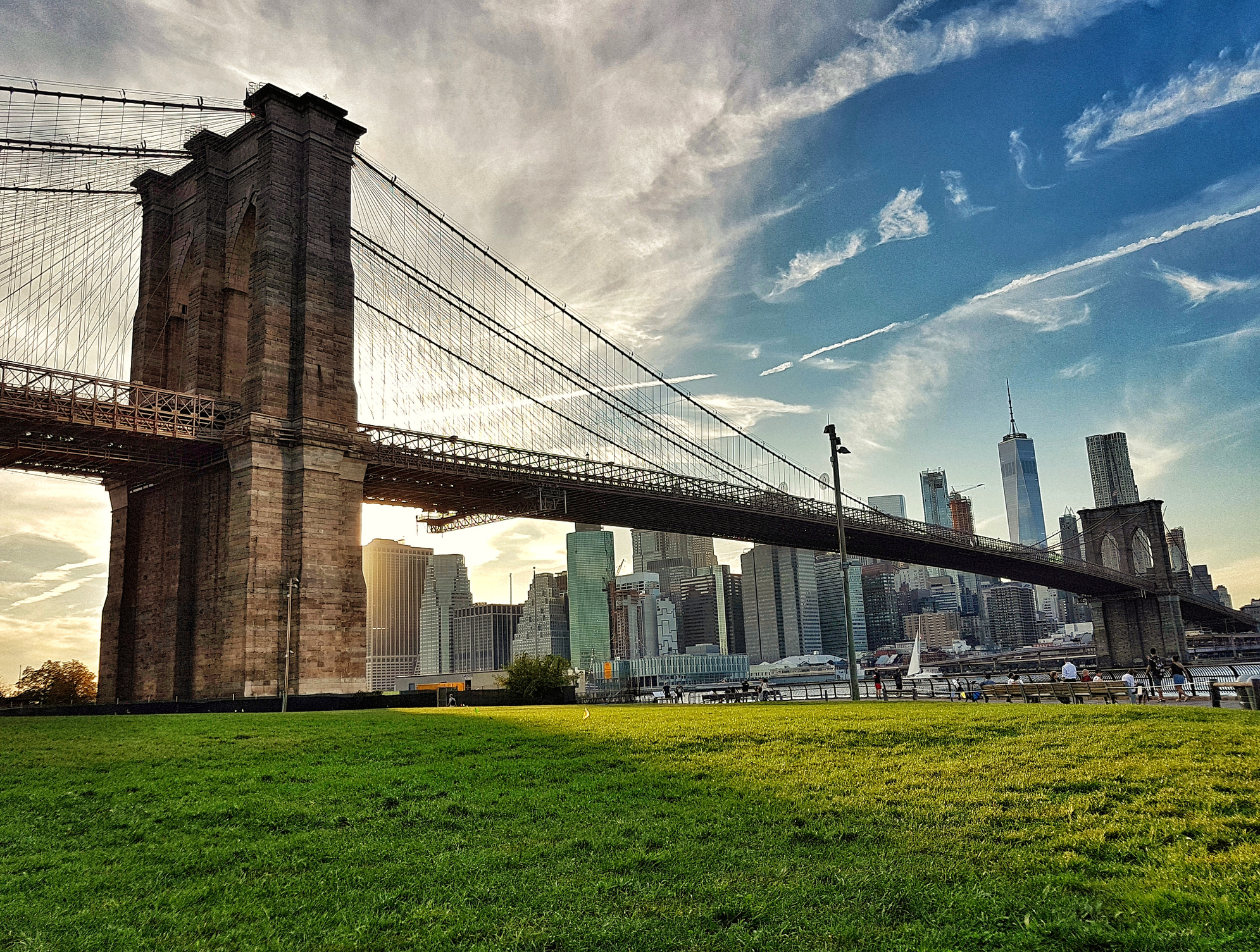
The Brooklyn Bridge offers stunning views of the Manhattan skyline, Brooklyn, the Freedom Tower, the Empire State Building and the Statue of Liberty. The walk is about 1.3 miles long and should take you about 60 minutes at a leisurely pace.
You'll be exposed to the weather hot or cold. In summer, there's almost no shade to speak of. In the winter, there's nothing to shield you from the wind. Dress appropriately for the season.
The entrance to the bridge for pedestrians is just across the street from City Hall in Manhattan. The walking path is narrow in places and especially at the beginning of the walk, for those starting in Manhattan, congested by vendors.
I suggest going off-hours, such as early in the morning or in the evening. You can combine the bridge walk with a visit to adjacent neighborhoods, such as DUMBO, Brooklyn Heights and Fulton Ferry Landing in Brooklyn Bridge Park. There are a variety of great restaurants, coffee spots and a few rooftop bars to enjoy before you make your trek back.
You may want to consider making the walk over the bridge at night — the sparkling city lights are a beautiful sight to see. The bridge will be crowded around sunset, but it should thin out if you go a little later. And generally speaking, it's safe to walk the Brooklyn Bridge at night.
How to get to the bridge (Manhattan side):
- 4/5/6: exit at the Brooklyn Bridge — City Hall station. This is the closest station to the bridge
- J/Z: exit at Chamber Street
- 2/3: exit at Park Place
- R: exit at City Hall
- A/C/F: exit at Chambers Street







